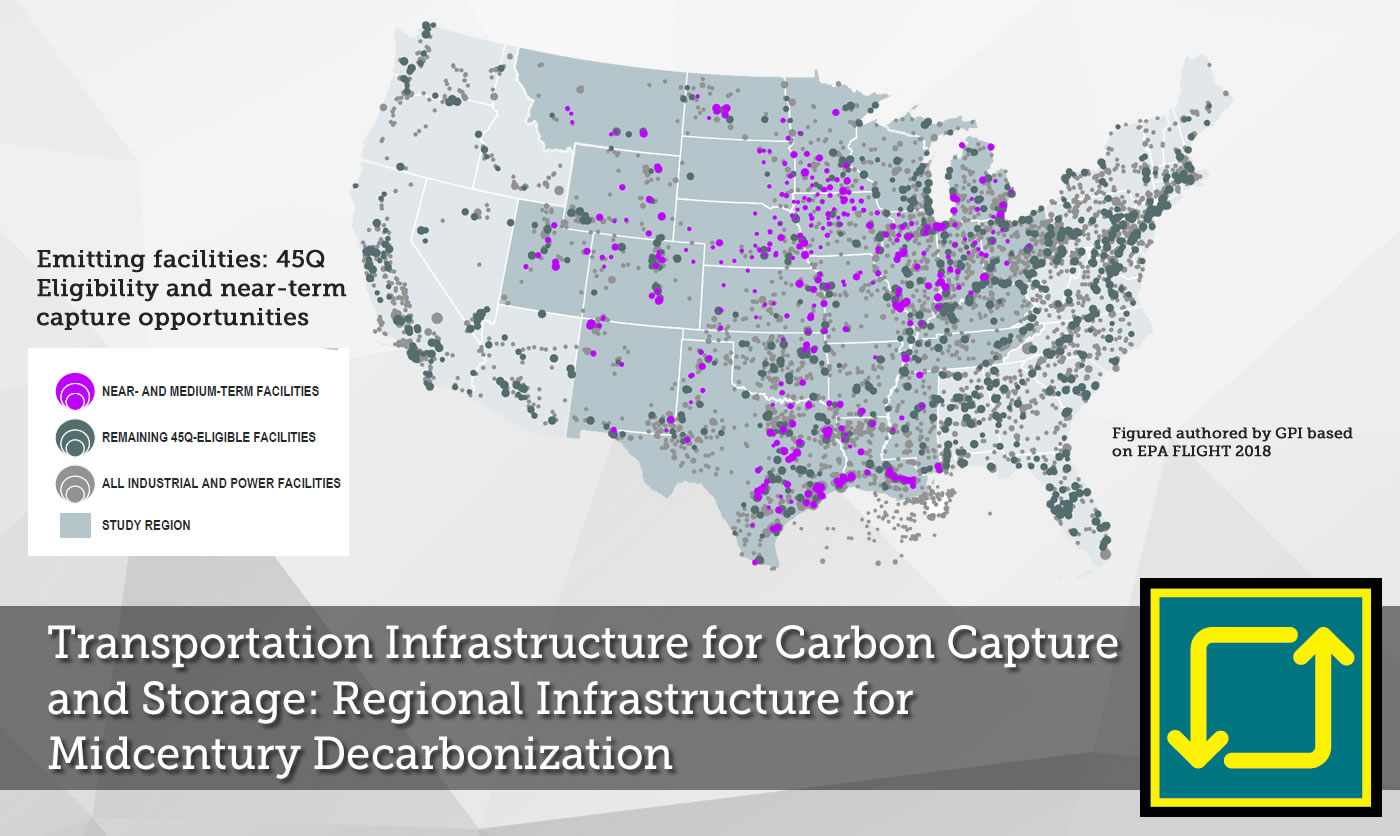The Great Plains Institute (GPI) and the University of Wyoming’s Jeffrey Brown explore the planning of CO2 transportation networks on a regional scale and ascertains the economic and environmental benefits that can be achieved through economies of scale to meet the US midcentury decarbonization goals.
This paper represents the results of modeling efforts to identifying regional scale CO2 transport infrastructure that would serve existing facilities and allow participation by new capture projects and facilities in the near future.
The analysis identifies near-term capture and storage opportunities, then designs and plans the regional transport infrastructure required to maximize CO2 reductions while minimizing cost and land use impacts throughout the Midwest, Rockies, Plains, Gulf Coast, and Texas.
The screening process identified industrial and power sector CO2 sources where carbon capture retrofit is financially viable. This captured CO2 is transported through modeled pipeline networks to carry the CO2 to deep saline geologic formations to be stored permanently.
“Planning CO2 transport infrastructure on a longer time horizon, for 2050 as opposed to 2030, achieved twice the amount of capture and storage in our modeling scenarios, while having almost no increase in land use impact and only a marginal increase in cost. Thus, twice as much carbon was stored at half the cost per ton when planning a coordinated regional network for the mid-century,” GPI Director of Research Dane McFarlane said.
The expansion of the federal Section 45Q tax credit has created momentum for carbon capture in the US with a more favorable policy landscape. GPI Vice President Brad Crabtree stated “Going forward, state policy can also play an important role in complementing 45Q and other federal policies to help carbon capture projects bridge cost gaps and achieve financial feasibility. State policies providing incentives for carbon capture, facilitating the development of CO2transport and storage infrastructure, and implementing energy portfolio requirements can all make carbon capture more economically feasible at local and regional levels.”
For more information please reach out to Mr. Jeffrey Brown or the Enhanced Oil Recovery Institute.

